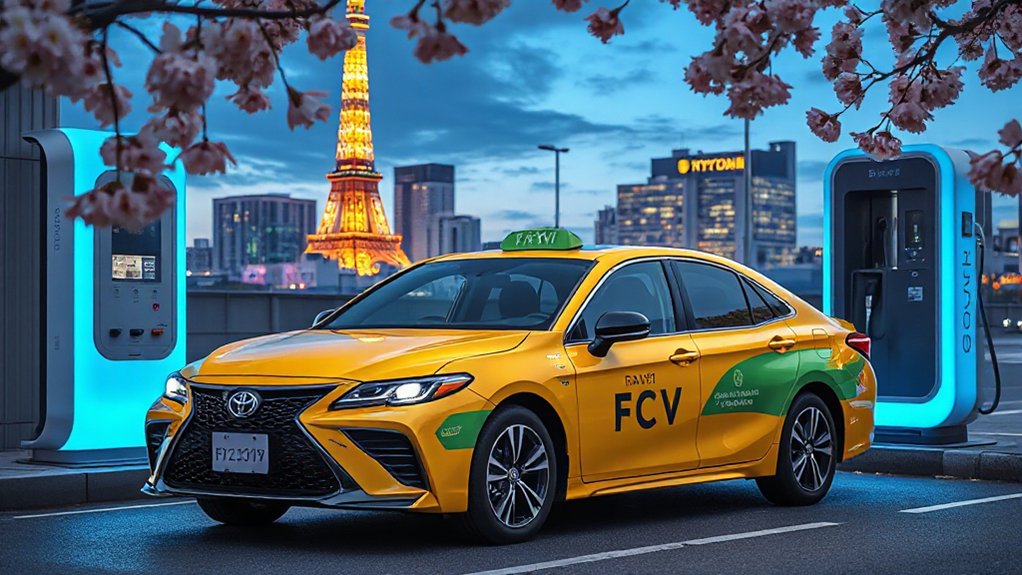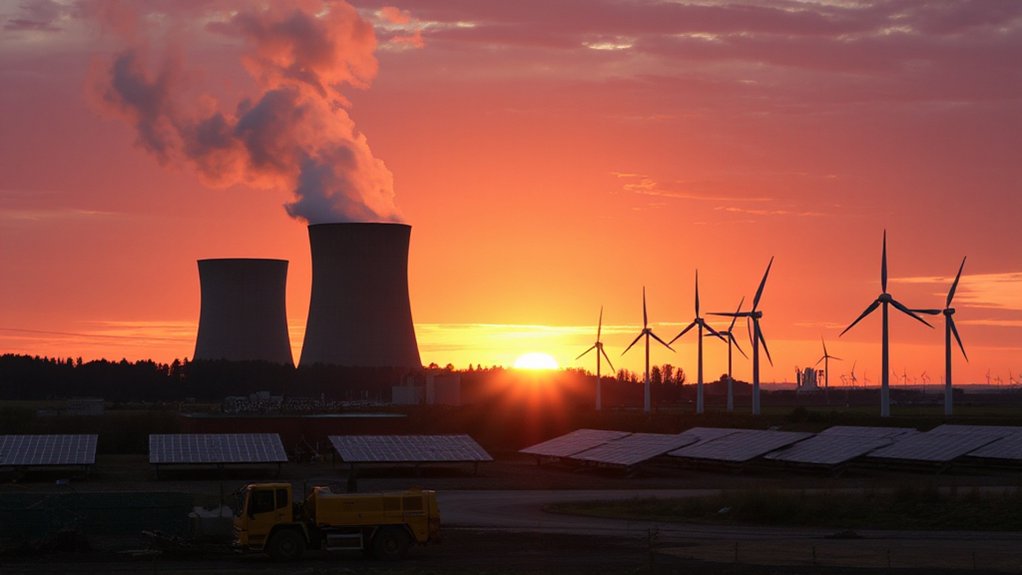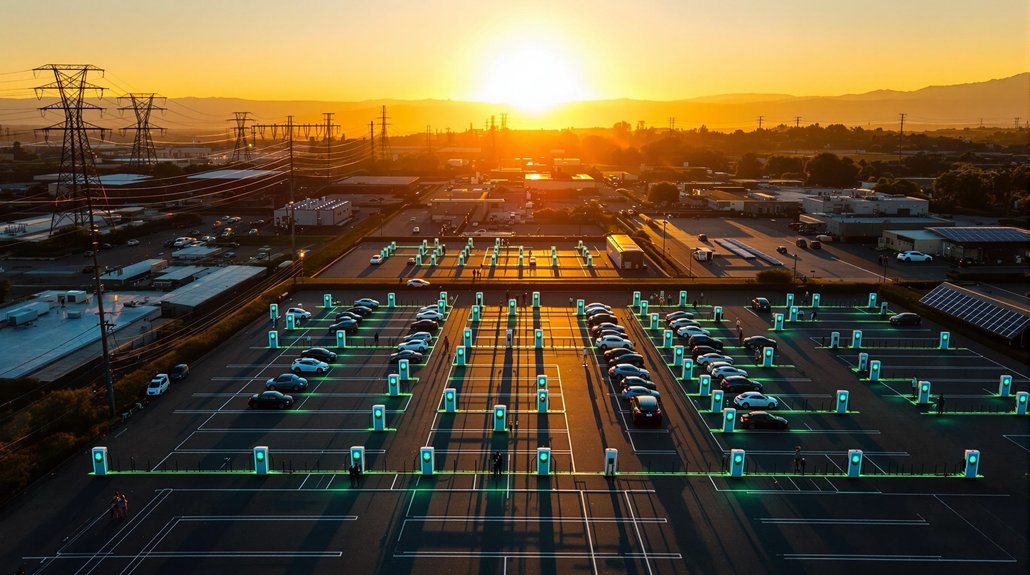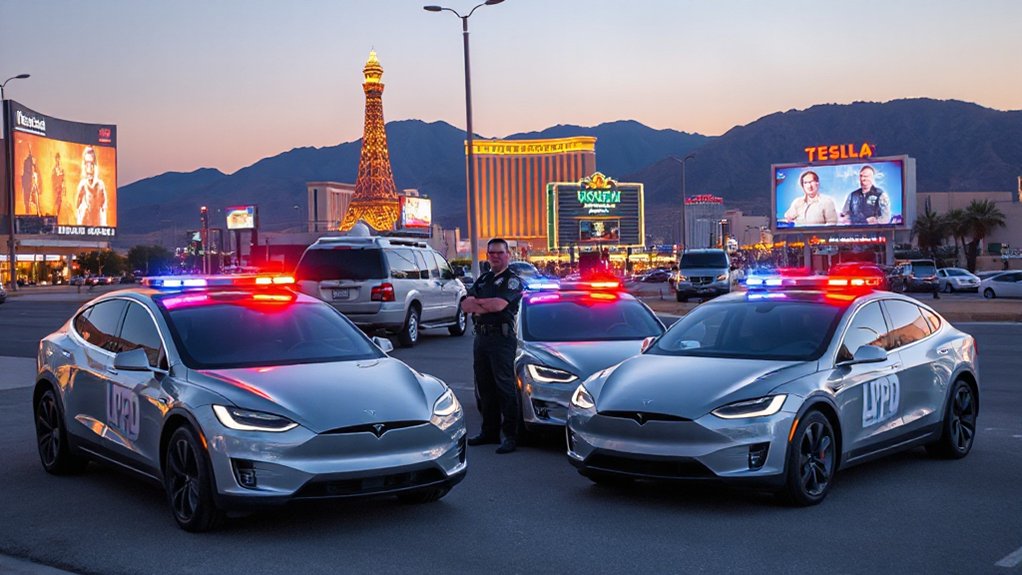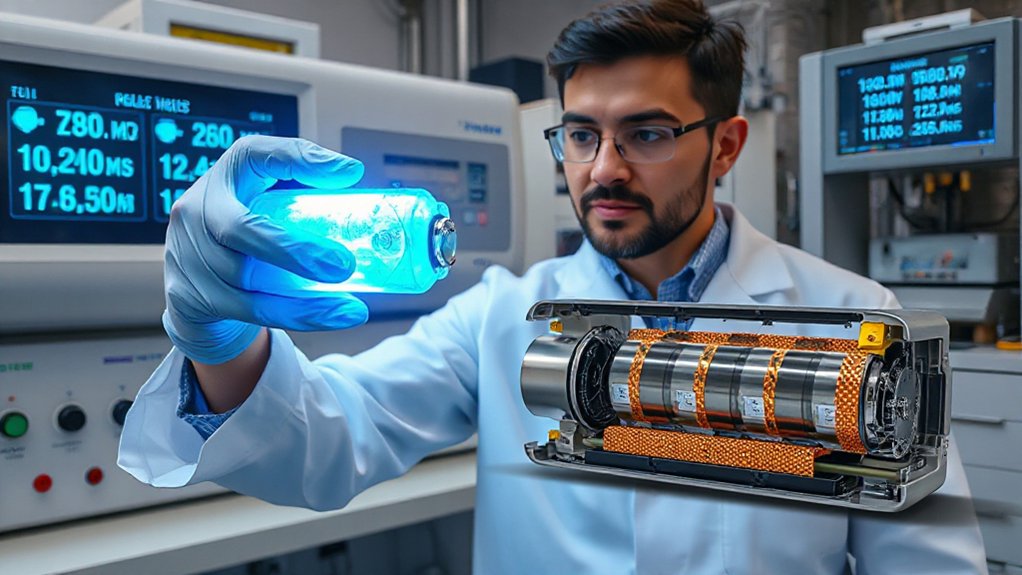Toyota is powering up Tokyo’s taxi scene with its new Crown FCVs as part of the ambitious TOKYO H2 project. The Tokyo Metropolitan Government plans to put 600 hydrogen-powered taxis on the road by 2030, with the first 200 vehicles set to arrive by 2025. This initiative aims to boost hydrogen demand in commercial transportation through teamwork with the Taxi Hire Association and private businesses.
The Crown FCV comes with a hefty price tag of about ¥8.6 million, much more than regular taxi models. To make these cars affordable for taxi companies, the government offers subsidies that lower the purchase price to ¥3.5–3.7 million. This financial help puts the hydrogen taxis in the same price range as Toyota‘s standard Japan Taxi models.
These new taxis offer more than just eco-friendly benefits. Passengers will enjoy a quieter ride with premium comfort, spacious rear seats, and easy entry and exit. The Crown provides superior accessibility compared to conventional taxis, making it ideal for diverse passenger needs. Unlike battery electric vehicles, the hydrogen fuel cell system provides longer driving ranges and quick refueling times, making them practical for busy taxi operations.
The Crown FCVs will help Tokyo meet its clean air and carbon reduction goals. As more hydrogen taxis hit the streets, they’ll create less pollution than gasoline-powered vehicles. The project is part of Japan’s broader goal to have 800,000 FCVs on the road nationwide by 2030. Officials hope this will create a positive cycle that strengthens the entire hydrogen supply chain.
To support this green taxi fleet, the TOKYO H2 HUB in Minato City serves as a center for hydrogen advocacy. The city also plans to build more hydrogen fueling stations as the number of vehicles grows. The shift to hydrogen taxis represents a significant step toward renewable energy adoption in urban transportation systems.
The Crown has a long history in Tokyo’s taxi service since 1955, with the Crown Comfort becoming a taxi staple after its 1995 introduction. This new hydrogen chapter builds on the model’s trusted reputation while pushing transportation into a cleaner future.
The project aims to spark a wider shift toward hydrogen mobility throughout Tokyo, showing how traditional vehicles can evolve to meet modern environmental challenges.
References
- https://www.argusmedia.com/en/news-and-insights/latest-market-news/2728057-japan-s-toyota-tokyo-city-to-promote-fuel-cell-taxis
- https://global.toyota/en/newsroom/corporate/43271693.html
- https://www.electrive.com/2025/09/04/toyota-joins-tokyo-h2-project-with-fuel-cell-crown-taxis/
- https://www.autoweek.com/car-life/a1880811/unsung-taxi-heroes-tokyo-toyota-crown-sedan-and-crown-comfort/
- https://en.wikipedia.org/wiki/Toyota_Crown
